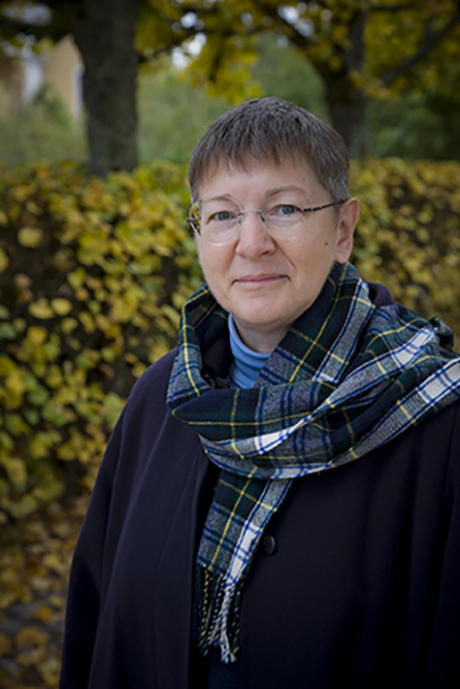Congratulations on the distinction! How do you view being named an honorary doctor?
“Thank you. Well, what can I say? Of course, it is wonderful and an honour. The best part is that my research colleagues at the Department of Conservation have shown such great confidence in my expertise by nominating me.”
What is your current research about?
“My research and my writing are about garden history in Sweden. Since I am an ethnologist, I primarily focus on the gardens for common people. I have had the opportunity to study gardens at manor homes, parsonages, farms, small holdings, old neighbourhoods, single-family homes, allotment-garden areas, modern residential areas, and public parks. As a result of the research, I work with historic preservation of important gardens. This is done with the help of garden care programmes, restoration and reconstruction, but primarily providing focused care of the plants.”
Among your current research projects, which one are you most fond of?
 “I have worked for many years with a book on exotic plans in gardens throughout history. These plants were grown in pots so they could be kept indoors during the winter. In the summers, they were moved outside as decoration and as status symbols in the garden.
“I have worked for many years with a book on exotic plans in gardens throughout history. These plants were grown in pots so they could be kept indoors during the winter. In the summers, they were moved outside as decoration and as status symbols in the garden.
Many garden owners still do this. There turned out to be very interesting and useful source material about this, much more than I first thought. So the text grew and grew. It would be so nice to get the time and money to complete the manuscript.”
Have there been any surprises in your research about exotic plants?
“One surprise was that the custom of having exotic plants in pots during the 18th century spread so quickly to other groups. It wasn’t just the gardens of landowning nobility that were decorated with bitter oranges, laurel, agaves and carnations. Many different social groups in different parts of the country took up the practice. They could be found at the manor homes of the mills in Gästrikland Province, in summer homes of city dwellers and the middle-class, and among researchers and collectors around the country. The difference was in the number of plants and what types were collected.”
What is your view of teaching and what do you try to communicate as an educator?
“I mostly teach about conservation of historic gardens. The most basic goal is to get antiquarians and conservationists without knowledge of garden history to really look at the gardens when they are in the field. So that they don’t experience the area around the buildings as just an anonymous green surface. When I teach landscape architects and gardeners, I have to get them to distinguish the historic layers in the plantings. And to ignore their own aesthetic preferences.”
Maria Flinck, born in 1957, has a BA in ethnology and art history from the University of Stockholm. She has worked within historic conservation for four decades, and today is a central authority within Swedish research on garden history. Maria Flinck’s knowledge of archives and source materials within the research field is unrivalled. She has developed care programmes for hundreds of historic gardens and, as a pioneering garden antiquarian, she has been crucial for the profession’s establishment and recognition.
Maria Flinck has also made important contributions as an author of scholarly and popular science text within historic preservation. Her book “Tusen år i trädgården, från sörmländska herrgårdar och bakgårdar” (1994) [One thousand years in gardens, from Sörmland manor homes to the back yard] was awarded the 1995 August Prize and has been of immeasurable importance for garden history research.
The doctoral award ceremony is on 16 October 2020. She will be hosted by Katarina Saltzman from the Department of Conservation.
 “I have worked for many years with a book on exotic plans in gardens throughout history. These plants were grown in pots so they could be kept indoors during the winter. In the summers, they were moved outside as decoration and as status symbols in the garden.
“I have worked for many years with a book on exotic plans in gardens throughout history. These plants were grown in pots so they could be kept indoors during the winter. In the summers, they were moved outside as decoration and as status symbols in the garden.